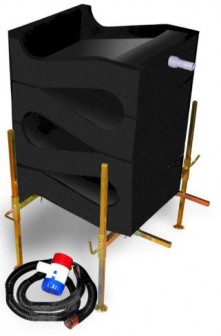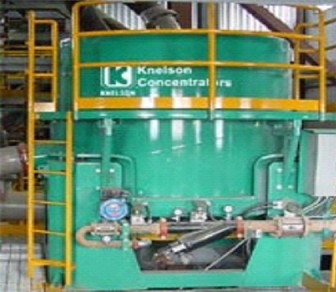The export of mercury from the United States will be banned from January 1 and could result in higher prices for the chemical here as well safer usage.
The United States is ranked as one of the world’s top exporters of mercury and the ban will remove a significant amount of mercury from the global market, according to the US Environmental Protection Agency. Currently, mercury is exported from the United States to foreign countries where it has various uses, including in artisanal and small-scale gold mining.

Guyana imports its mercury supplies from countries in Central America and the US ban could see the price for the chemical rising, Administrative Coordinator of the Guyana Gold and Diamond Miners Association (GGDMA), Colin Sparman says. As a result, operational costs for the small miners who use mercury will also rise, he said. Currently, a flask of mercury retails for about $30,000 and is just over a pound, Sparman said.
The US ban could also see miners being more careful and using retorts so as to capture and reuse the mercury. Sparman noted that usage of retorts has increased over the years and most miners now use them. Regulations are in place that makes it mandatory to use retorts and the price would “compel” them to use the equipment, Sparman said. “I believe we got enough mercury supplies in the country,” he further stated.
The US Mercury Export Ban Act, which was signed into law on October 14, 2008 includes provisions on both mercury exports and long-term mercury management and storage. The main provisions prohibit federal agencies from conveying, selling or distributing elemental mercury that is under their control or jurisdiction including stockpiles held by the Departments of Energy and Defense; and prohibits the export of elemental mercury from the United States beginning January 1, 2013. The release of mercury into the environment as a result of gold mining activities not only adversely affects the health of millions of artisanal miners and their communities, but is also a major cause of global mercury pollution, the US EPA says.
Apart from the US ban which follows a similar ban by the European Union just over a year ago, the fifth session of the Intergovernmental negotiating committee to prepare a global legally binding instrument on mercury (INC5) will be held in Geneva, Switzerland from 13-18 January 2012. This is the final meeting and it is expected that a legally binding instrument will emerge from this meeting.
In a statement earlier this month, the Ministry of Natural Resources and the Environment said Guyana won support at consultations for Latin America and the Caribbean, for a lobby to be mounted at the Geneva meeting for mercury use in mining to be extended. The consultations were held from November 26-29 in Bogota, Colombia to facilitate regional preparations for INC5. Local miners have been pressing the government to lobby internationally for mercury use in gold processing to be extended and have argued that alternatives to mercury are not feasible at the moment.
Meantime, the Guyana Geology and Mines Commission (GGMC) has been seeking feasible alternatives to using mercury to recover gold and in August invited interested medium and large-scale mine operators to submit proposals to operate and manage two Knelson Concentrator processing plants. The Knelson Concentrator is a gravity concentration apparatus, mainly used in the gold mining industry for the recovery of fine particles of free gold. It does not involve the use of mercury and is said to offer a more efficient method and costs little to upkeep. However, the cost of one is expensive.

A GGMC official told Stabroek News that the contracts for two operators to manage the Knelson Concentrators were being drafted. The official said that the gold mining company, Mahdia Gold will operate one at Omai while another operator will manage the other at Waini in the North-West District. “Probably by next week time it [the contracts] should be finished,” the official said.
In addition, Sparman revealed that a few miners were experimenting with a “gold cube” to recover gold and these were successful. He said the gold cube was similar to the sluice box but smaller. Online checks revealed gold cubes being retailed from US$99 up to less than US$500 and they have a high recovery rate. The gold cube “shows a lot of encouragement,” Sparman said.




